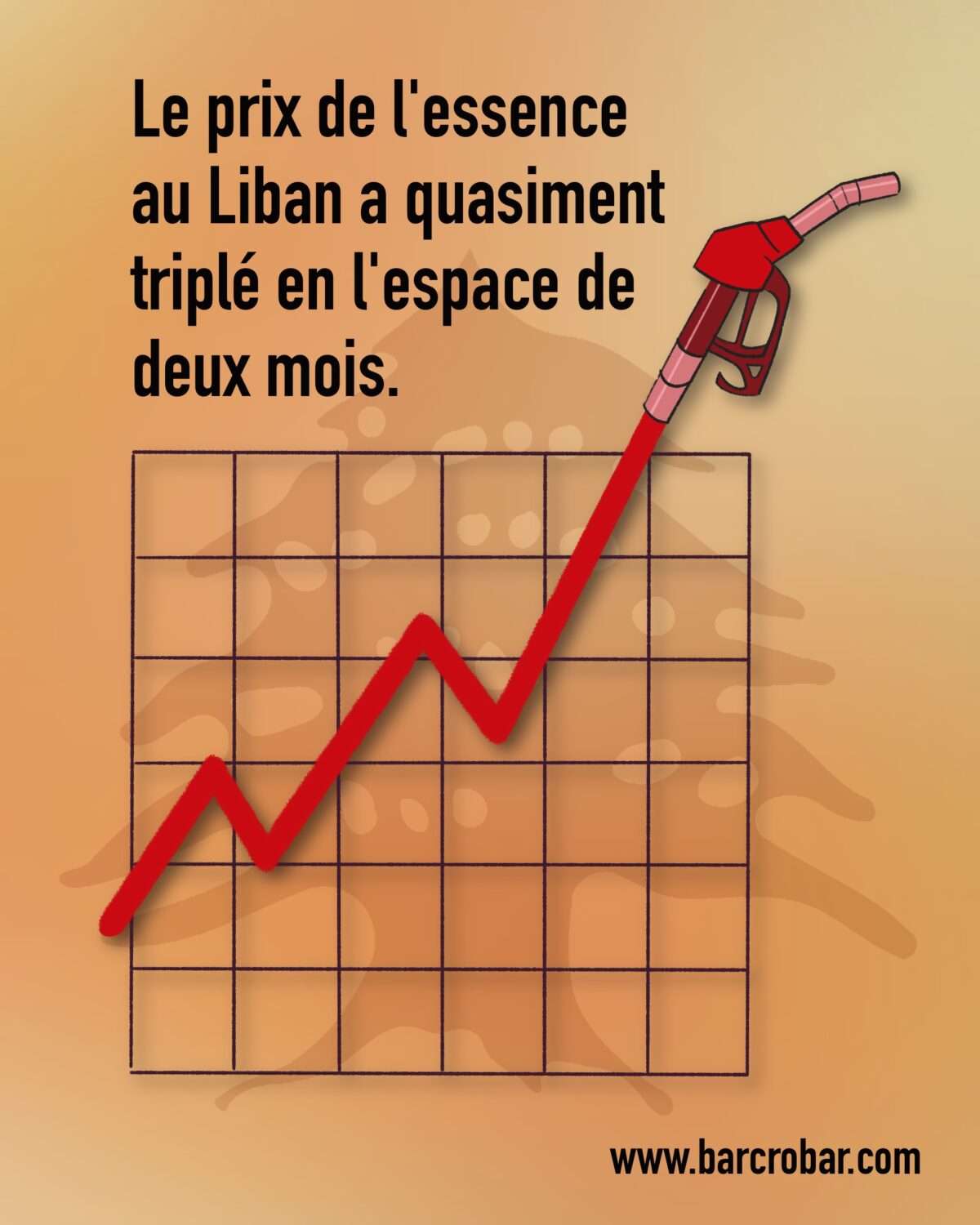LEBANON - Lebanon, in the throes of economic collapse, increased fuel prices by almost 70% on Sunday 22 August, marking a further reduction in subsidies in a country deprived of foreign currency and plagued by shortages. With this latest increase, fuel prices have almost tripled in the two months since the Central Bank began cutting import subsidies in June.
The increase will have repercussions throughout the economy, driving up prices in a country hit by hyperinflation. With the crisis, prices in supermarkets are rising almost week by week, due to a depreciation of the Lebanese pound that nothing seems to be stopping. According to the new price list published on Sunday by the National Information Agency (ANI), the price of unleaded 98 and 95 petrol has risen by 67% and 66% compared with the last prices announced on 11 August. The price of household gas has risen by 50%.
Because of the shortages, many petrol stations are not opening and long queues are forming in front of those that are accepting customers, as you can see in the video above. To clear their name, the authorities are pointing the finger at smuggling into neighbouring Syria, where fuel is sold at a much higher price than on the Lebanese market. The army launched searches and seized tonnes of fuel from service stations and suppliers accused of stockpiling it for speculative purposes. On 15 August, before dawn, a petrol tanker exploded in the Akkar region (north), killing around thirty people, according to a new report from the Ministry of Health, with some of the injured dying from their injuries.
One of the worst economic crises
Since autumn 2019, Lebanon has been going through one of the worst economic crises in the world since the middle of the 19th century, according to the World Bank. A Central Bank (BDL) mechanism used to provide importers with dollars at the official rate of 1,507 Lebanese pounds, which was cheaper than the market rate, thereby curbing the price of certain products. But short of foreign currency, the BDL began gradually rationing its dollars. At the end of June, it announced the adoption of a rate of 3900 pounds to the dollar for fuel imports.
On Saturday, at a meeting between the President, the outgoing Prime Minister and the Governor of the Central Bank, a new rate of 8,000 pounds was adopted. The Central Bank had first announced on August 11 that it would no longer finance fuel subsidies, causing panic.
For several weeks, the exhausted population has been living for long hours without electricity, and even hospitals are threatened by the energy crisis. Some 78% of the Lebanese population now live below the poverty line, according to the UN.
text by Le HuffPost with AFP

